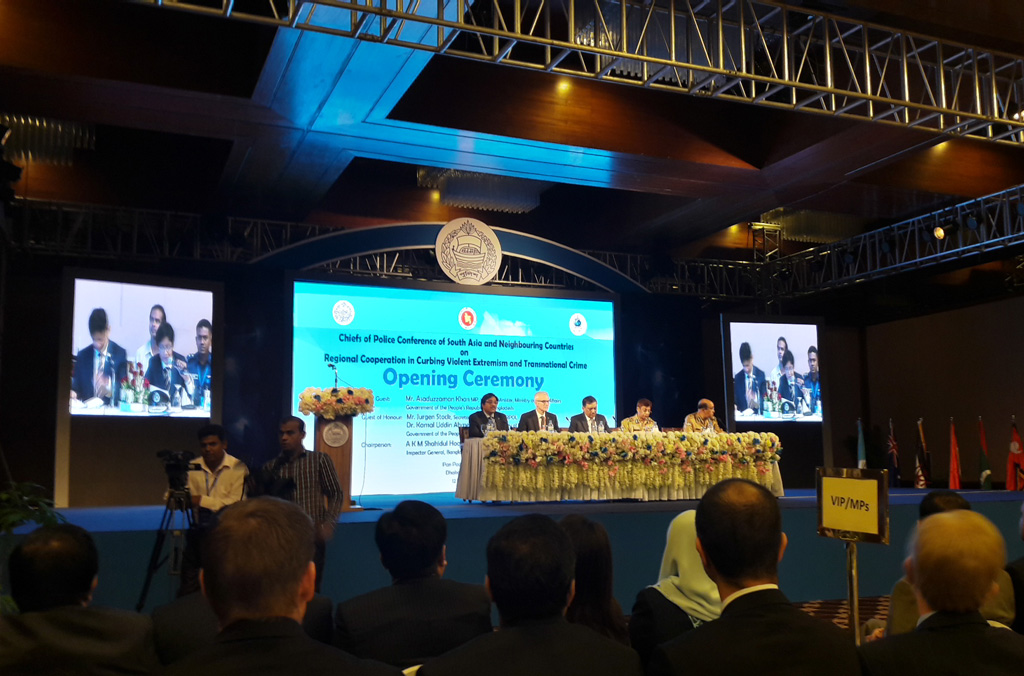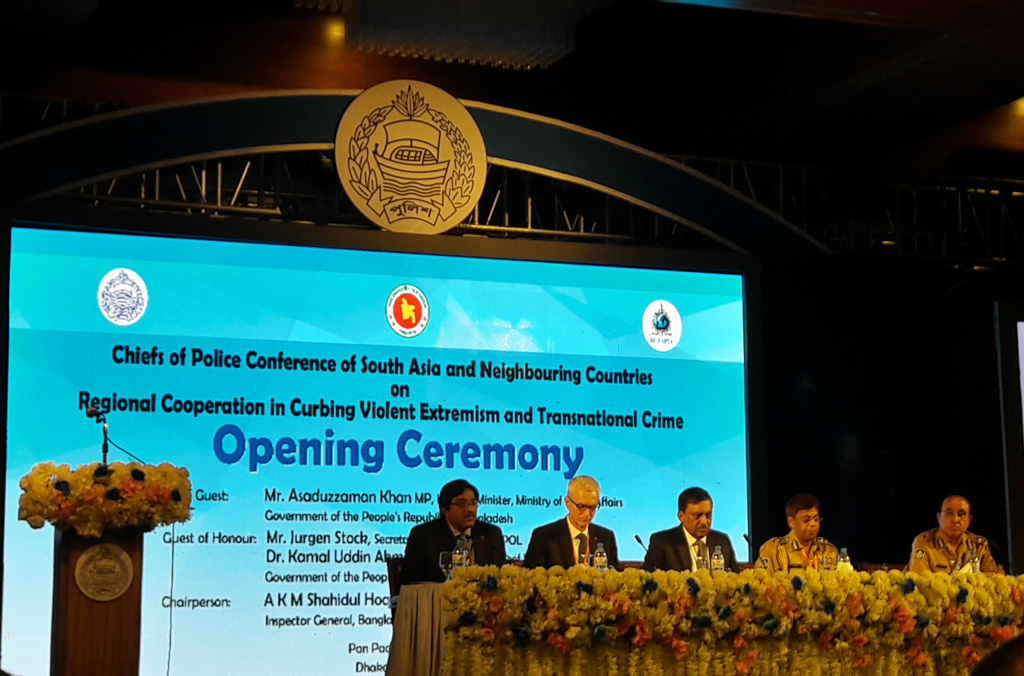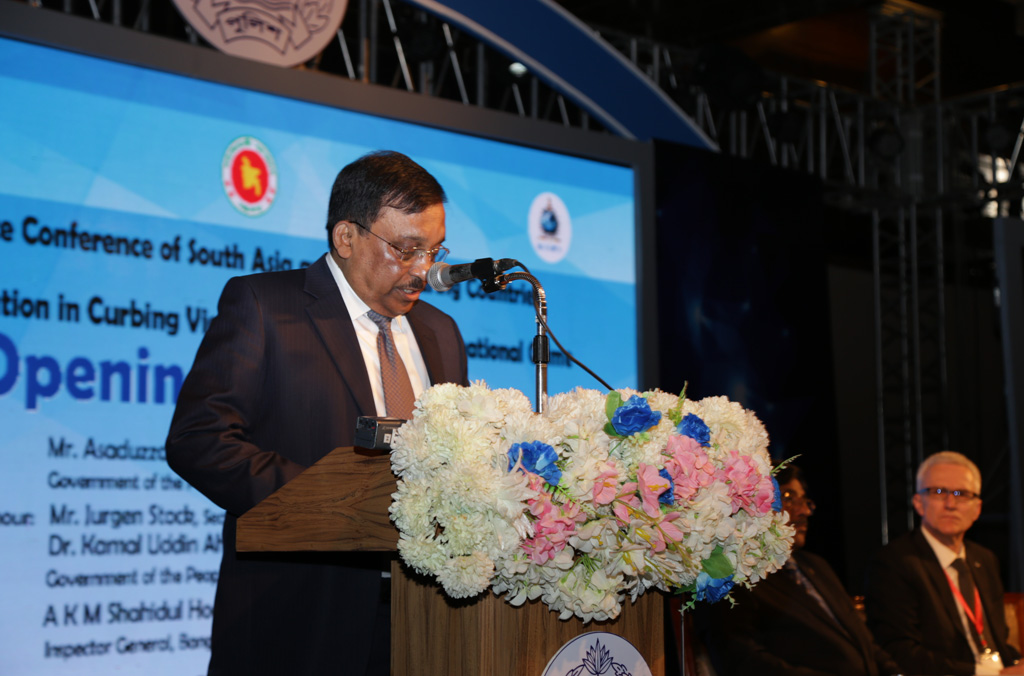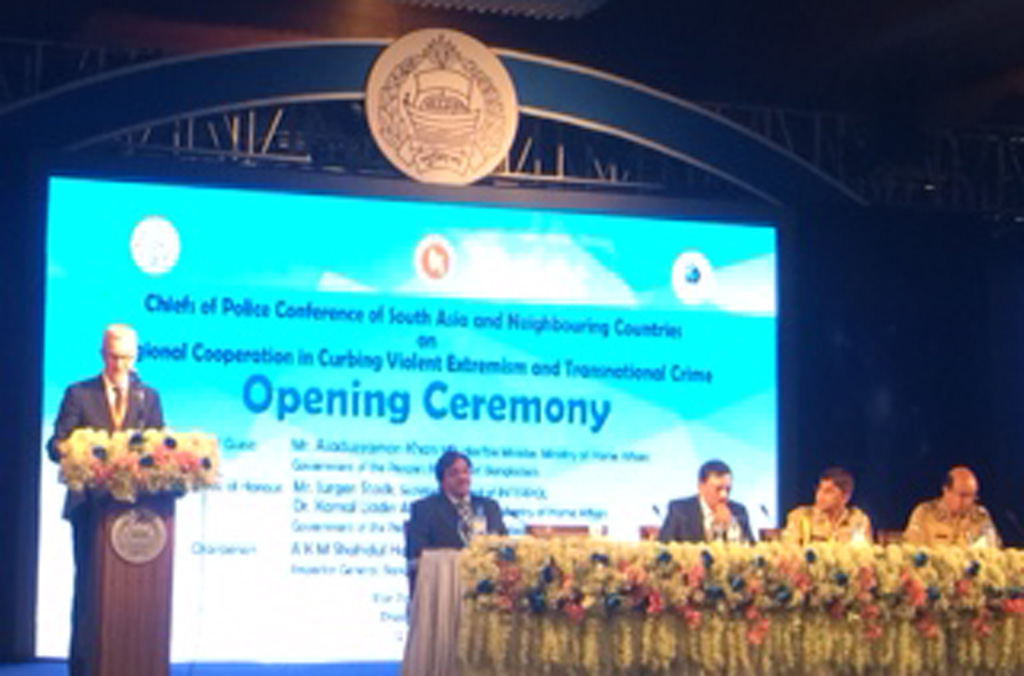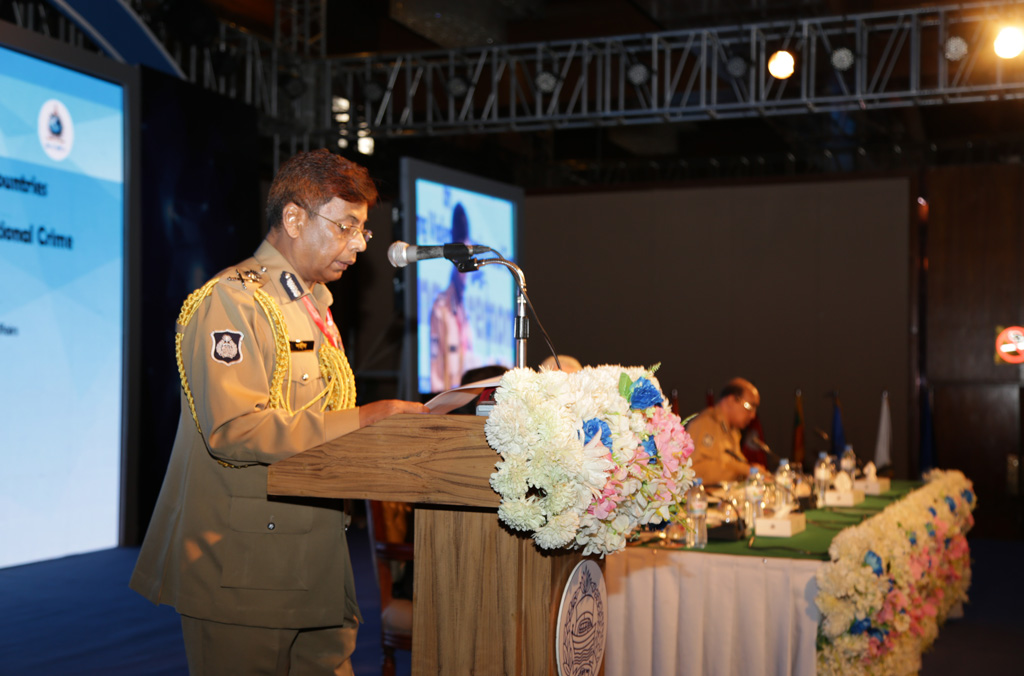DHAKA, Bangladesh – The Head of INTERPOL has said that regional and global police cooperation has never been more essential against terrorism and transnational organized crime.
Addressing the Chiefs of Police Conference of South Asia and Neighbouring Countries, INTERPOL Secretary General Jürgen Stock said contemporary law enforcement agencies often face the very direct consequences of criminal thinking, propaganda or actions in another part of the world.
“In today’s world, timely sharing of information through trusted channels can save lives,” said Secretary General Stock.
“Unchecked financial activity, criminal recruiting from vulnerable communities, or procuring of illicit weapons in one part of the world can lead to deadly consequences elsewhere. In our digital age, crime can strike in a few seconds.”
Recognizing Bangladesh’s efforts to expand INTERPOL’s I-24/7 secure communications system to its borders, Secretary General Stock thanked the Bangladesh Police for jointly organizing with INTERPOL the three-day (12 – 14 March) conference.
It aims to foster law enforcement cooperation across national borders to address threats in South Asia and beyond, such as violent extremism, financial crime drug trafficking, people smuggling and trafficking in human beings.
In this respect, in May 2016 Bangladesh took part in an international INTERPOL operation targeting the criminal networks behind people smuggling. Operation Infra (International Fugitive Round Up and Arrest) Hydra, focusing on internationally wanted fugitives, resulted in the positive location or arrest of at least 60 individuals worldwide following exchange of information and coordination via INTERPOL’s global network during the operation.
Describing INTERPOL’s I-24/7 communications system and databases as a ‘global early warning system’ against terrorists and crime threats, Secretary General Stock said: “Today’s threat landscape means that the need for information sharing is all-encompassing; whether between countries located in distant parts of the world, in neighbouring regions, or even just next door to each other.”
“Enhanced global information sharing between police agencies helps better avert crime, respond to incidents and facilitate transnational investigations,” added the Head of INTERPOL.
In the aftermath of the terror attack in Dhaka on 1 July 2016 which left 29 dead, INTERPOL offered its full support to Bangladesh via its range of policing capabilities, including global databases and assistance from its Command and Coordination Centre.




